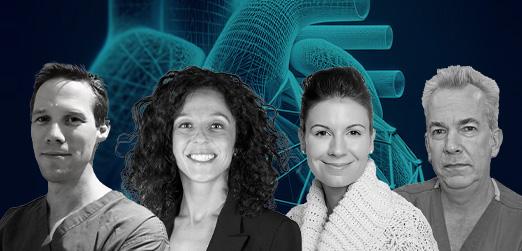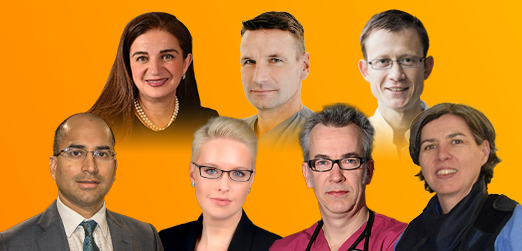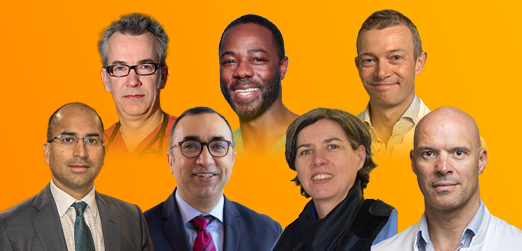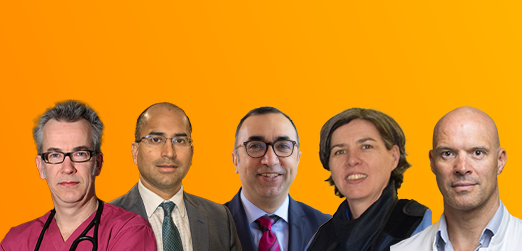- Home
- Optimising Outcomes For The TAVI Patient: Key Considerations For First Valve Choice And Implantation Techniques
Optimising Outcomes For The TAVI Patient: Key Considerations For First Valve Choice And Implantation Techniques
- Intervention
- Structural Heart Disease
Available Credit:
- Not accredited
Course Published On:
Course Expiry Date:

Overview
In this satellite symposium, 'Optimising outcomes for the TAVI patient: Key Considerations for First Valve Choice and Implantation Techniques' hear from leading faculty as they consider when to use a surgery or TAVI-first approach, summarise clinical evidence to date and assess possible management scenarios by way of clinical cases.
This symposium is part of Transcatheter Interventions Online 2022, a world-class virtual event dedicated to transcatheter treatment strategies for coronary and structural heart disease.
Support Statement
This programme is supported by unrestricted educational grants from Medtronic. The scientific programme has not been influenced in any way by the sponsors.
Disclosure
In compliance with EBAC guidelines, all speakers/chairpersons participating in this programme have disclosed or indicated potential conflicts of interest which might cause a bias in the presentations.
The Organising Committee/Course Director is responsible for ensuring that all potential conflicts of interest relevant to the event are declared to the audience prior to the CME activities.
Terms & Conditions
Radcliffe Education requires contributors to our CME programmes to disclose any relevant financial relationships that have occurred within the past 12 months that could create a conflict of interest. These will be identified in the faculty section if applicable.
The session, ‘Optimising Outcomes For The TAVI Patient: Key Considerations For First Valve Choice And Implantation Techniques’ is accredited by the European Board for Accreditation of Continuing Education for Health Professionals (EBAC) for 1 hour of external CME credits.
Each participant should claim only those hours of credit that have actually been spent in the educational activity. EBAC works according to the quality standards of the European Accreditation Council for Continuing Medical Education (EACCME), which is an institution of the European Union of Medical Specialists (UEMS).
Through an agreement between the European Board for Accreditation in Cardiology and the American Medical Association, physicians may convert EBAC External CME credits to AMA PRA Category 1 Credits™. Information on the process to convert EBAC credit to AMA credit can be found on the AMA website.
Instruction to Participants
There is no fee for taking part in this online learning activity.
Activities are designed to be completed within 60 minutes and must be completed by the registered user. Physicians should only claim credits for time spent on the activity. To successfully earn credit, participants must complete the activity in full in the indicated time frame.
To complete the course and claim certification participants must:
- Read the course outline information supplied and complete pre-test questions if supplied prior to starting the activity. Users must read and study the activity in its entirety before completing the post-test questions.
- Your results will be automatically saved and if a pass score is achieved (where applicable), you may be eligible to claim credit for the activity and receive a certificate of completion.
Target Audience
- Cardiologists
- Interventionalists
- Surgeons who are involved and/or interested in transcatheter treatment strategies for coronary and structural heart disease
- Interventional Cardiology Nurses
Learning Objectives
Upon completion of this activity, participants will be able to:
- Recall the latest data showing why durability and hemodynamics matter for initial valve selection
- Discuss the latest techniques to help achieve optimal outcomes for patients with longer life expectancy
- Review TAVI cases that highlight procedure optimisation with the Evolut pro+ platform
Module |
Title |
Duration |
Speakers |
|---|---|---|---|
| Welcome | Welcome and Introduction | Didier Tchétché | |
| Session 1 | Considerations for first valve choice | Ran Kornowski | |
| Session 2 | Optimised approaches for long-term success | Lars Søndergaard | |
| Session 3 | Tips and tricks for achieving procedure efficiencies | Douglas G Fraser |
Chair
Panelist













